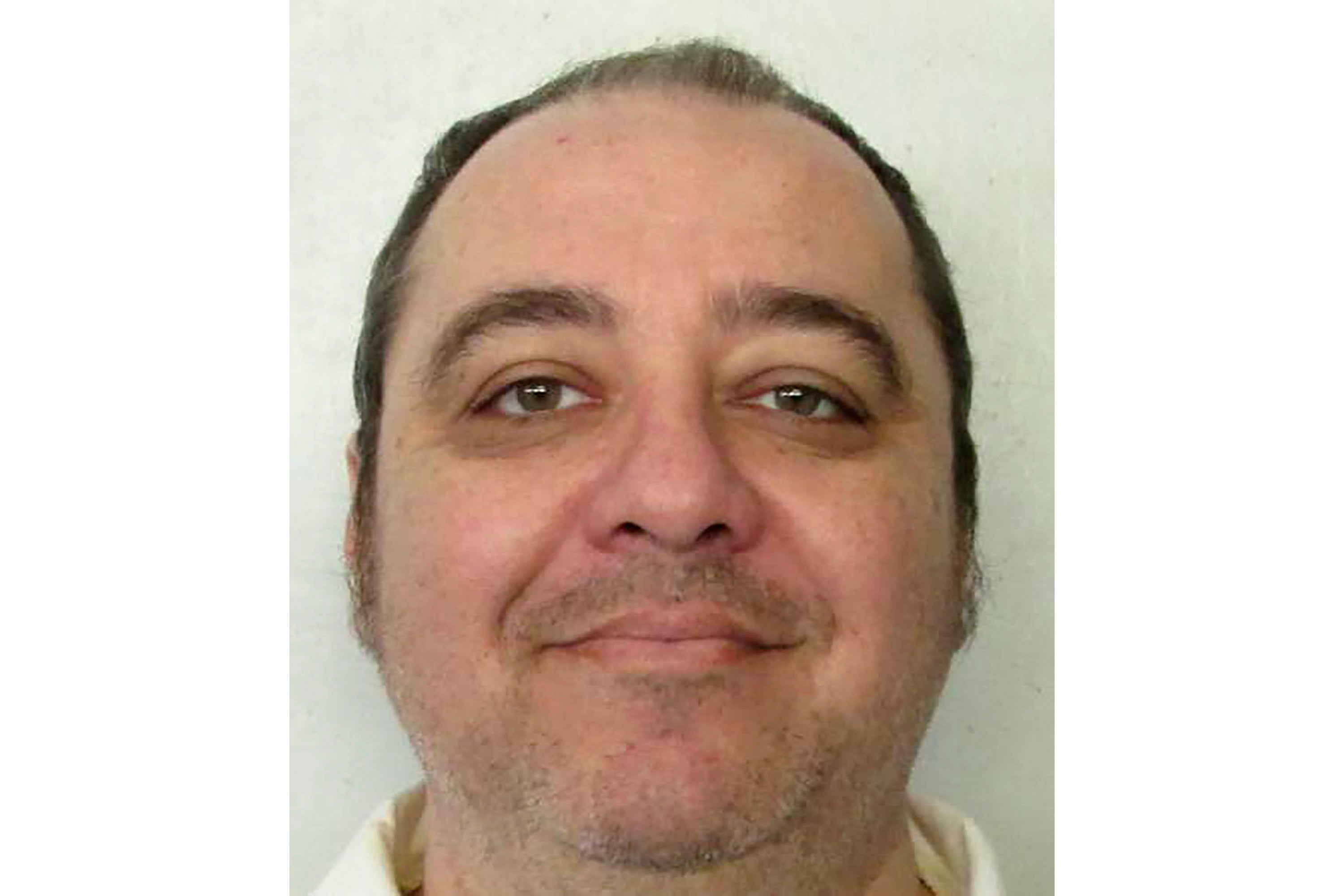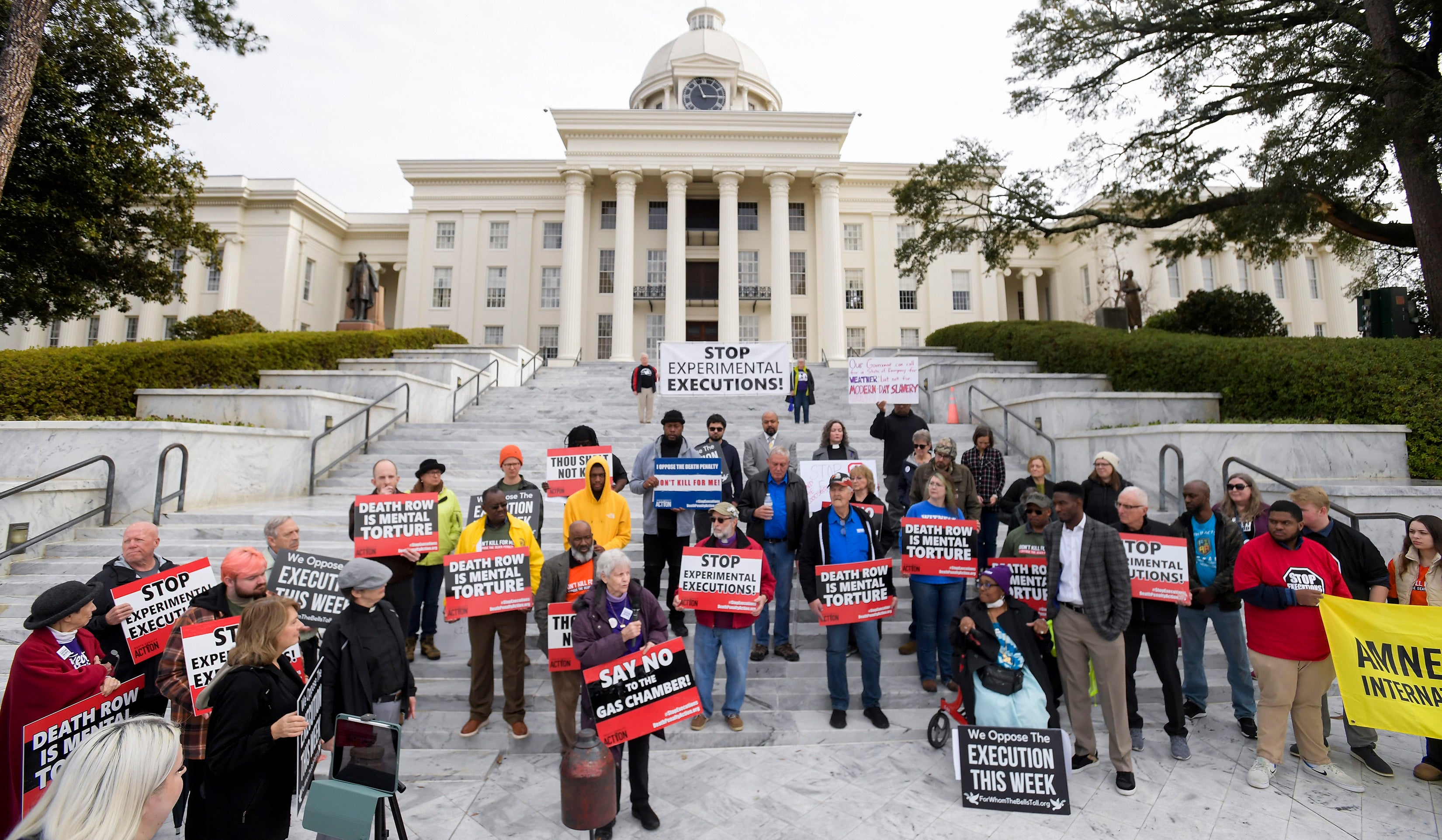Alabama death row inmate Kenneth Smith faces execution today as lawyers make final efforts to save him
US Supreme Court cleared the way for Alabama to proceed with ‘cruel’, untested execution method
Your support helps us to tell the story
From reproductive rights to climate change to Big Tech, The Independent is on the ground when the story is developing. Whether it's investigating the financials of Elon Musk's pro-Trump PAC or producing our latest documentary, 'The A Word', which shines a light on the American women fighting for reproductive rights, we know how important it is to parse out the facts from the messaging.
At such a critical moment in US history, we need reporters on the ground. Your donation allows us to keep sending journalists to speak to both sides of the story.
The Independent is trusted by Americans across the entire political spectrum. And unlike many other quality news outlets, we choose not to lock Americans out of our reporting and analysis with paywalls. We believe quality journalism should be available to everyone, paid for by those who can afford it.
Your support makes all the difference.Alabama has vowed to execute Kenneth Eugene Smith with nitrogen gas after 11th hour appeals by the death row prisoner’s lawyers were rejected.
The 58-year-old convicted killer is due to be put to death during a 30-hour window beginning on Thursday, in an untested execution method that his lawyers and experts have decried as cruel and experimental.
On Wednesday night, the US Supreme Court declined to stay his execution after his lawyers had claimed Smith was at undue risk of a torturous death that would amount to cruel and unusual punishment, violating the 8th and 14th amendments of the US Constitution.
The justices did not provide an explanation and there were no dissents.
The 11th US Circuit Court of Appeals earlier on Wednesday also declined to halt Smith’s execution, saying he “has failed to show a substantial likelihood of success on the merits of his claims”.
Smith’s lawyers are expected to make a separate appeal to the US Supreme Court on Thursday in a final attempt to halt the execution.

On Wednesday night, Alabama attorney-general Steve Marshall welcomed the courts’ decisions and vowed to move forward with the execution in a statement.
“While Smith will likely appeal to the US Supreme Court, my office stands ready to carry on the fight for [Smith’s victim] Liz Sennett,” Mr Marshall wrote.
“I remain confident that the Supreme Court will come down on the side of justice, and that Smith’s execution will be carried out tomorrow.”
Alabama Governor Kay Ivey set a 30-hour window of time for the execution to take place from midnight CT (6am GMT) on 25 January to 6am CT (12pm GMT) on 26 January.
A tentative start time of 6pm CT (midnight GMT) on 25 January has been scheduled.
Smith will be executed at the William C Holman Correctional Facility in Atmore, where officials from the Alabama Department of Corrections will strap him to a gurney, place an industrial mask over his face and pump his lungs full of pure nitrogen.

Death row experts say the state is seeking to make Smith the “test case” for the new execution method of nitrogen hypoxia that has been deemed inhumane for euthanising animals.
Smith’s lawyers have argued that if the mask’s seal is broken by involuntary movement, he could continue to draw in enough oxygen that would cruelly prolong his death.
They say he could also vomit into the mask, causing him to choke and raising the risk of a tortuous death.
The United Nations High Commissioner for human rights, Volker Türk, also called for Alabama to halt the execution, saying it “could amount to torture or other cruel, inhuman or degrading treatment or punishment under international human rights law”.
Alabama botched a previous attempt to execute Smith by lethal injection in 2022 for his role in the 1988 murder-for-hire slaying of Elizabeth Sennett.
The execution was called off after officials “jabbed him in his arms and hands” in an unsuccessful effort to access his veins that left Smith with post-traumatic stress disorder, according to his lawyers.

Smith was convicted of murdering Mrs Sennett in 1988 in a murder-for-hire scheme in Colbert County. He was part of a two-person team paid $1,000 by her indebted husband to commit the crime.
Charles Sennett Sr took his own life before he could be charged.
In 1996, a jury voted 11 to 1 to sentence Smith to life in prison, but the judge presiding over the case overrode the verdict in favour of the death penalty. The state recently barred the practice of judicial override for capital punishment but the law does not apply retroactively.
Alabama is employing the untested execution method due to the scarcity of lethal chemicals used to carry out executions. Many drug manufacturers have prohibited the use of their products in executions or stopped manufacturing them altogether.
Mississippi and Oklahoma have also authorised nitrogen hypoxia as an execution method, but no state has attempted to use the method until now.
The Independent and the non-profit Responsible Business Initiative for Justice (RBIJ) have launched a joint campaign calling for an end to the death penalty in the US. The RBIJ has attracted more than 150 well-known signatories to its Business Leaders Declaration Against the Death Penalty – with The Independent as the latest on the list. We join high-profile executives such as Ariana Huffington, Facebook’s Sheryl Sandberg and Virgin Group founder Sir Richard Branson as part of this initiative and are making a pledge to highlight the injustices of the death penalty in our coverage.

Join our commenting forum
Join thought-provoking conversations, follow other Independent readers and see their replies
Comments